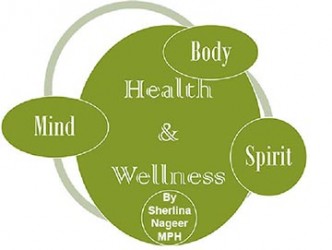What are you getting for Christmas? What are you giving your loved ones? These are the questions that consume many people’s thoughts and attention at this time of year. Yes, it’s supposed to be joy to the world, peace, love, and togetherness, but as we all know, the reality is rather different. Yes, there’s some increase of charitable giving during the holiday season—toy drives for children, gift baskets for the ‘less fortunate’ etc—or so it appears anyway, with donating companies/entities making sure that their gift-giving is photographed and widely shared. Unfortunately, many of these acts are just brief bursts of ‘feel goodness’ that look nice like fireworks in the sky but rapidly fade away.
 The fact is that hunger, hopelessness, and need are prevalent in Guyana year-round and occasional charitable giving, while addressing immediate needs, does little to change the conditions of oppression that keep people wanting. Charity alone—without addressing the underlying root causes of economic injustice—does nothing to improve the long-term quality of life. As the saying goes: give a man a fish and he’ll eat for a day but teach him to fish and he’ll eat for a lifetime (well, as long as the river isn’t polluted or dammed). Quality education, jobs that pay a living wage, safe working conditions, affordable and accessible health care and childcare, these are the things that people need to become financially independent. However, these things require substantial long-term investment; it is far quicker and easier to just drop off a bag of rice and some sugar.
The fact is that hunger, hopelessness, and need are prevalent in Guyana year-round and occasional charitable giving, while addressing immediate needs, does little to change the conditions of oppression that keep people wanting. Charity alone—without addressing the underlying root causes of economic injustice—does nothing to improve the long-term quality of life. As the saying goes: give a man a fish and he’ll eat for a day but teach him to fish and he’ll eat for a lifetime (well, as long as the river isn’t polluted or dammed). Quality education, jobs that pay a living wage, safe working conditions, affordable and accessible health care and childcare, these are the things that people need to become financially independent. However, these things require substantial long-term investment; it is far quicker and easier to just drop off a bag of rice and some sugar.
There is a role for charitable giving; the government after all cannot do everything at all time. The larger charities have staff, office buildings, their own vehicles, and often work in tandem with government agencies, providing services and items which government entities may lack or be unable to provide in a timely manner. It becomes problematic however when charities take on tasks that the government should be providing to the citizens, thereby relieving the elected officials of doing their duty to the populace. This is also worrisome as charities can be given a lot of leeway with which to act because people are so grateful for the services they provide. Independent monitoring, evaluation, and oversight can be lacking and donations frequently misspent, not necessarily reaching those in need as the donors intended.
Also, because most charities focus most of their time and energy simply on meeting the immediate needs of people, not on providing them with the tools, skills, and resources they need to become fiscally empowered and independent, the pool of poor people never diminishes. As such, the charity ensures that it remains perpetually in business. In fact, as inequity increases and the social safety net crumbles, marginalizing more and more people, charities get bigger and bigger, more established and entrenched in society. The fact is that if charities really impacted people’s lives in a positive way, there would be less poor people in society, not more. Yes, sometimes people just need a little bit of assistance to get out of a temporarily difficult situation, but more often, people remain mired in harmful and unhealthy situations, victimized by broken and oppressive systems that do nothing to help them realize their potential, that, in fact, are designed to keep them oppressed and dependent, that benefit from keeping them in lowly positions.
Charities—by feeding the hungry and temporarily relieving people’s pain—relieve society of the pressure to substantively address the underlying factors that create and perpetuate the suffering. The fact is that people whose attention is always focused on where their next meal is coming from or how their basic needs will be met are easily distracted and manipulated. This, perhaps, is the greatest argument against charity.
As the holidays creep closer, the appeals to donate to charities increase, and photo ops of charitable giving fill the newspapers and social media. However, it is not always clear or easy to find out how donations are spent and decisions made. Charities are not above the law; they need to be transparent and accountable to all donors as well as the general public.
Encouraging people to think about and share their resources with the less fortunate is commendable, yes, but this needs to be a year-round phenomenon, not just a seasonal thing. Altruism is essential to a healthy society; evolutionary biologists have found that altruistic behaviour is genetically programmed into human’s genes and brains, and that cooperation and interdependence are crucial to our survival. Research has shown that helping others—even those to whom one is not directly related—benefits society as a whole. Studies have also shown that people who help others benefit as well- experiencing greater emotional wellbeing, less stress and depression, and a more positive outlook on life in general. Physically, helping others releases chemicals that are similar to those gained from exercising, producing a ‘helpers high’ that reduces blood pressure and inflammation and increases heart health. Aside from these benefits to the individual, when altruism is extended to groups/communities, understanding is increased, isolation reduced, and a greater sense of belonging felt. Altruism therefore, is good for our physical and mental health, individually as well as communally.
Much of the current thinking about charitable giving needs to be re-evaluated however, to include concrete skill building and financial empowerment initiatives, as opposed to just meeting basic needs. Aside from improving individuals’ quality of life, this is key to decreasing crime which often a major focus during this time of year.
Finally, giving doesn’t always have to involve money or material items. Many times, a kind, non-judgmental ear and supportive shoulder are often more needed and appreciated than anything else. Spending quality time with children, as well, can be the most effective action towards building a healthy society. As the adage says the best things in life really are free. Sadly, many in society today suffer from a lack of love and compassion. These are the gifts to give this holiday, and year-round.
Sherlina can be contacted at ssnageer@yahoo.com.









